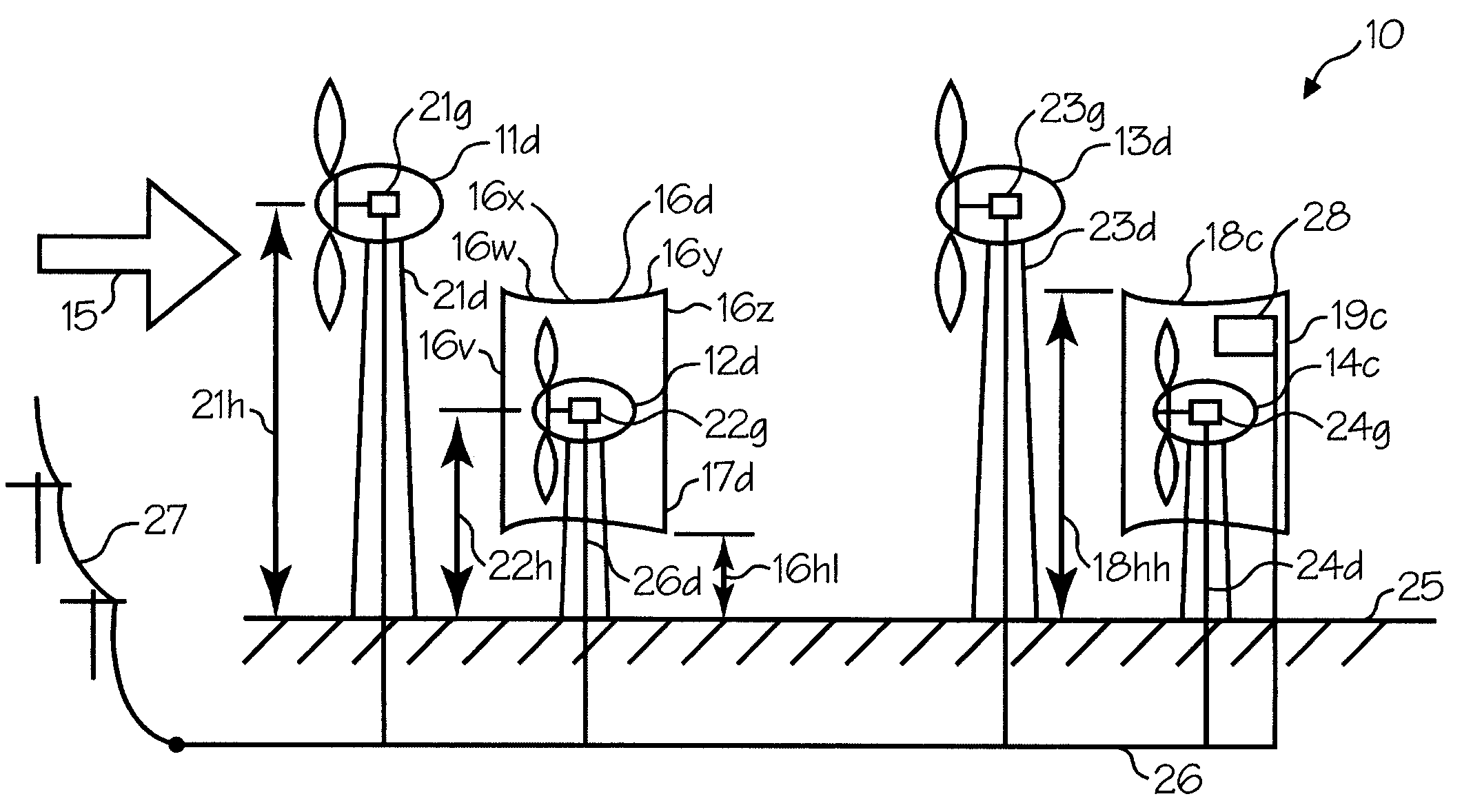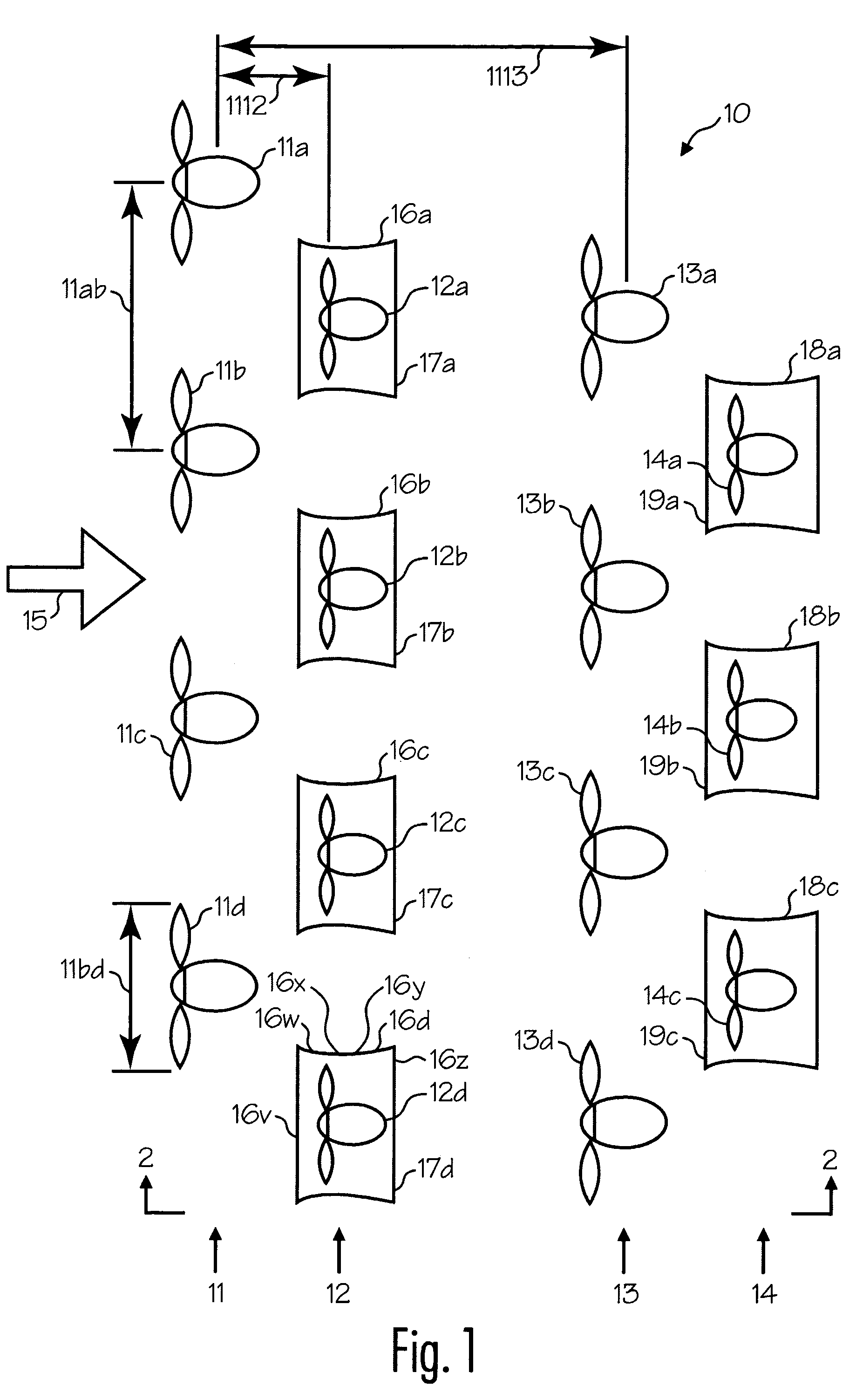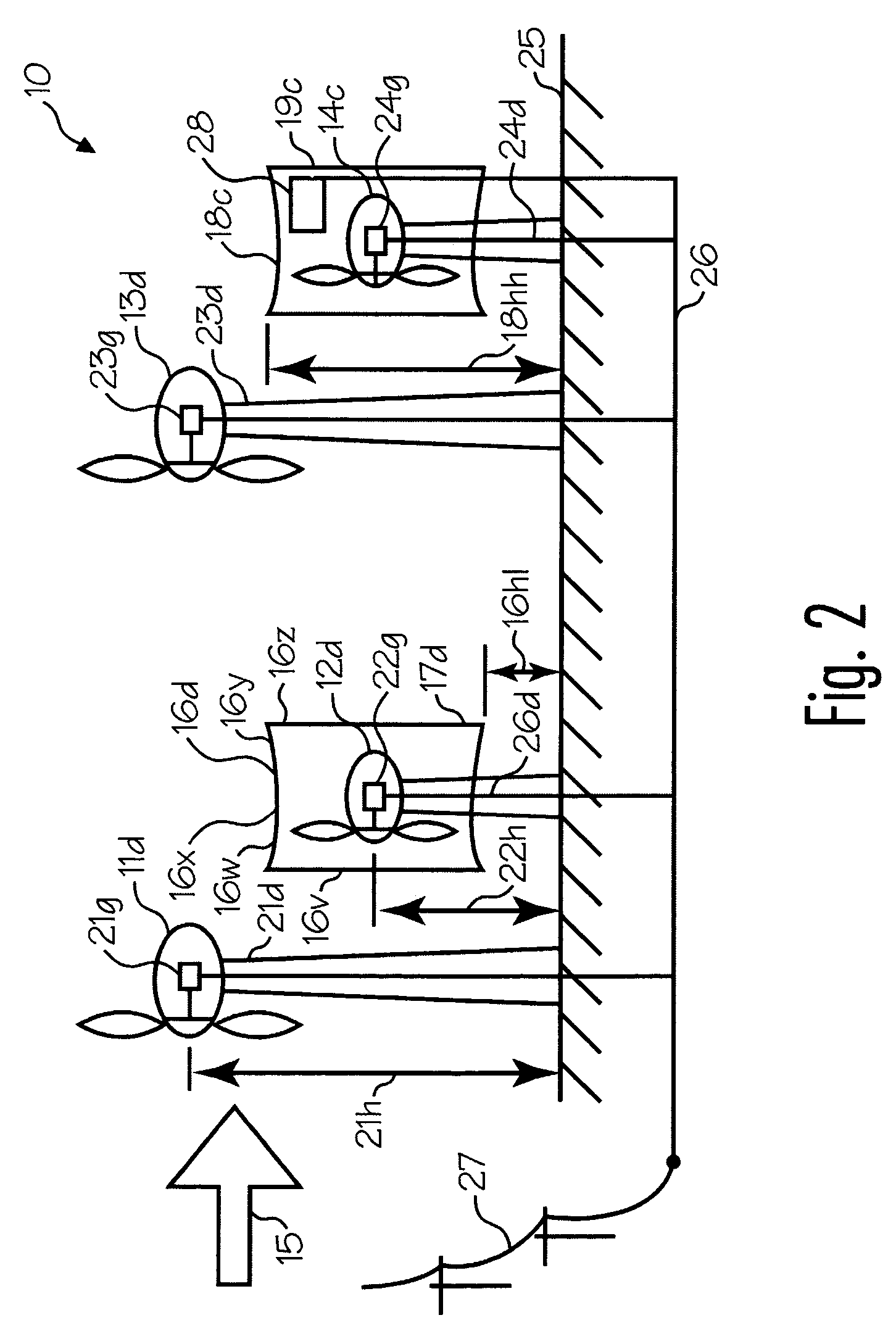Wind energy harnessing apparatuses, systems, methods, and improvements
a technology of wind energy and harnessing equipment, applied in the direction of wind energy generation, wind motors with parallel air flow, perpendicular air flow, etc., can solve the problems of limited number of wind turbines installed in a particular area of land, limited available locations with adequate and relatively consistent wind speeds, and the contribution to the risks and potential harm of global warming, etc., to facilitate faster manufacturing and implementation of wind energy production capability, increase wind velocity, and reduce losses
- Summary
- Abstract
- Description
- Claims
- Application Information
AI Technical Summary
Benefits of technology
Problems solved by technology
Method used
Image
Examples
Embodiment Construction
[0010]This invention provides, among other things, methods of improving the power production capability of a new or existing wind farm, wind farms for generating electricity from wind, and various apparatuses for harnessing wind energy. Various embodiments of the invention provide as an object or benefit that they partially or fully address one or more of the needs, potential areas for improvement or benefit, or functions described herein, for instance. Specific embodiments provide as an object or benefit, for instance, that they increase or improve the power production capability of a new or existing wind farm, or of a particular area of available land, or allow greater power production per area of land, more wind turbines per area of land, or less interference between adjacent wind turbines. In some embodiments, an object or benefit may be to install at least some wind turbines at locations within the wind farm where wind speeds are relatively high.
[0011]In addition, some embodime...
PUM
 Login to View More
Login to View More Abstract
Description
Claims
Application Information
 Login to View More
Login to View More - R&D
- Intellectual Property
- Life Sciences
- Materials
- Tech Scout
- Unparalleled Data Quality
- Higher Quality Content
- 60% Fewer Hallucinations
Browse by: Latest US Patents, China's latest patents, Technical Efficacy Thesaurus, Application Domain, Technology Topic, Popular Technical Reports.
© 2025 PatSnap. All rights reserved.Legal|Privacy policy|Modern Slavery Act Transparency Statement|Sitemap|About US| Contact US: help@patsnap.com



